
For to us a child is born,
to us a son is given;
and the government shall be upon his shoulder,
and his name shall be called
Wonderful Counselor, Mighty God,
Everlasting Father, Prince of Peace. – Isaiah 9:6

“The focus of 2 John is living in the love of God in accordance with the truth of Jesus Christ. This love extends not only to God but to other people. It is also discerning; it does not “go on ahead” of biblical revelation (v. 9), and it does not lend aid to enemies of the gospel message (vv. 10–11). Instead, Christ’s followers “walk according to his commandments” (v. 6) and through faith “win a full reward” (v. 8).
The theme of 3 John is steadfastness in the face of opposition. The recipient of the letter, Gaius, faces a troublemaker named Diotrephes. By “walking in the truth” (vv. 3, 4), Christians can embrace and live out the apostolic message that John conveys in all his letters.” – Crossway Bibles. ESV Study Bible. Good News Publishers/Crossway Books

Martin Luther said the book of Romans is “the greatest letter ever written.” Why would he say that? The Apostle Paul writes to the 1st century church at Rome, as well as to us today, about the depths of God’s holiness, man’s sinfulness, Jesus’ sufficient work to save, and God’s salvation given to sinners, free of charge. The book of Romans is the high point of all of Scripture, teaching most clearly who God is in sovereignty, what God requires in his holiness, and what God provides in his grace toward His people. This letter answers with great detail questions like why do we need the gospel? what is the gospel? how deep is the gospel? and then beautifully finishes with how then should we live? Come and study the greatest letter ever written.
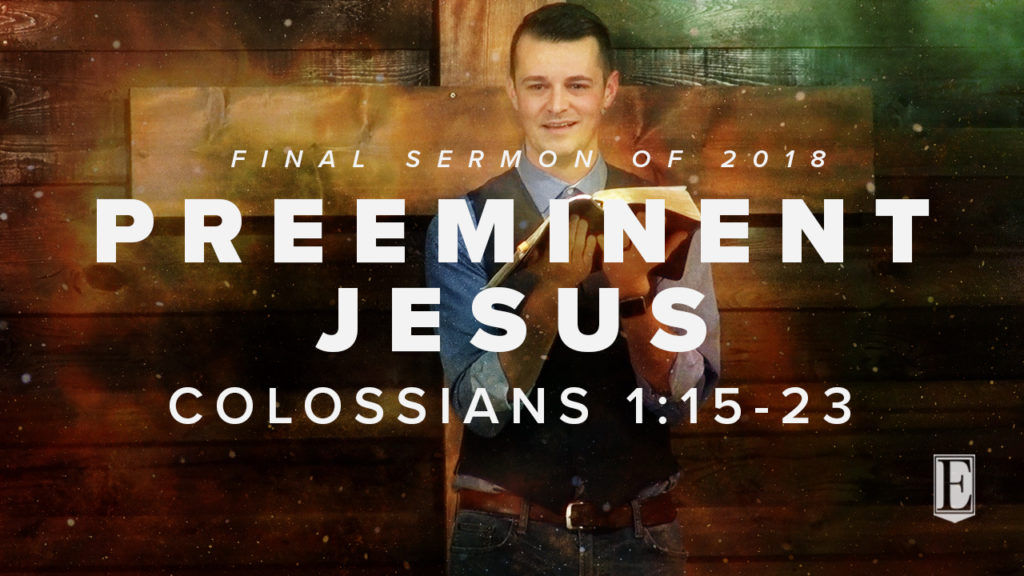
A New Year sermon from Colossians 1:15-23.

A Christmas sermon from Philippians 2:4-11.

In the beginning of his letter to the Romans, Paul introduces himself as one “set apart for the gospel of God, which he promised beforehand through his prophets in the holy Scriptures, concerning his Son.” We want to find these promises. So join us this Advent as we look at what God promised beforehand about his Son, Jesus. We will trace God’s Gospel through the Law, Prophets & Writings. We will anticipate with God’s people the coming of a great Prophet, Priest, & King. And we will look not only to the first coming of Jesus, but anticipate his glorious second advent.¹
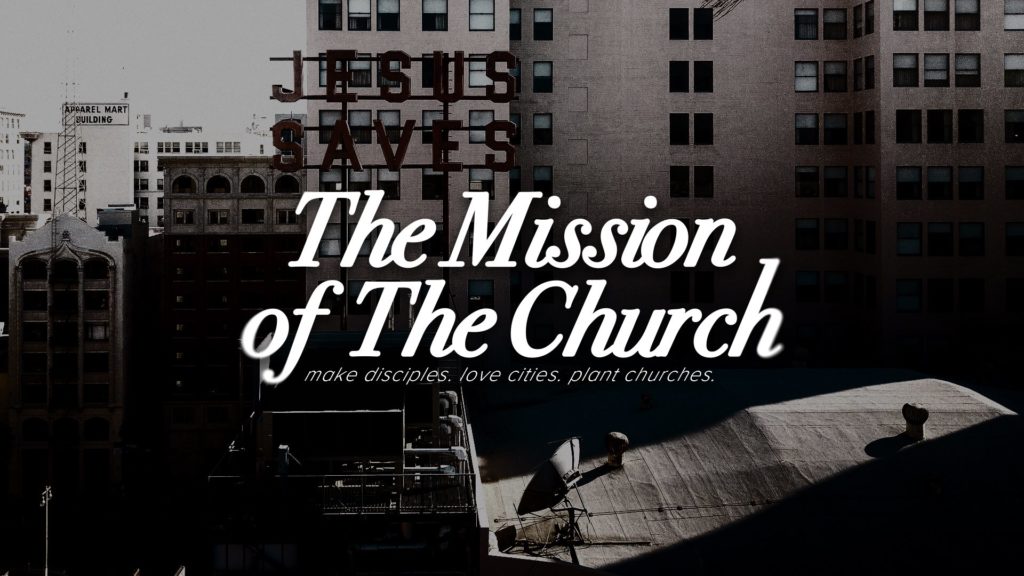
We believe local churches exist to make disciples, love cities, and plant churches that share the same vision.
We seek to make disciples of Jesus, in obedience to his commands. “And Jesus came and said to them, ‘All authority in heaven and on earth has been given to me. Go therefore and make disciples of all nations, baptizing them in the name of the Father and of the Son and of the Holy Spirit, teaching them to observe all that I have commanded you. And behold, I am with you always, to the end of the age’” (Matthew 28:18-20). We believe a disciple is someone who has received a new identity from Jesus, by grace through faith, which leads to new activity for Jesus. The new identity we receive in Christ includes adoption into God’s family, forgiveness of sins, as well as being counted righteous before God. By God’s grace, this new identity leads to new activity. This new activity is summed up in one word: holiness. To be holy means to be set apart in obedience to God.
As we seek to love God with all our heart, soul, and mind, we all also seek to love our neighbor. “You shall love the Lord your God with all your heart and with all your soul and with all your mind. This is the great and first commandment. And a second is like it: You shall love your neighbor as yourself” (Matthew 22:37-39). We believe we should love our city through evangelism, prayer, and practical service. We strive to always be seeking the peace and prosperity of the city as a whole (Jeremiah 29:4-11), as well as loving our neighbors individually (Luke 10:25-37).
We plant churches so that more people will be saved by Jesus as well as grow in love and service to both God and neighbor. “But you will receive power when the Holy Spirit has come upon you, and you will be my witnesses in Jerusalem and in all Judea and Samaria, and to the end of the earth” (Acts 1:8). We believe the promise of Acts 1:8 will be ultimately fulfilled by Jesus, through his church, as they obey the great commission. For Ekklesia, planting churches is a natural extension of Jesus’ command for us to make disciples of all nations.
In this short sermon series, we will focus on three passages to help answer the question what is the mission of the Church?
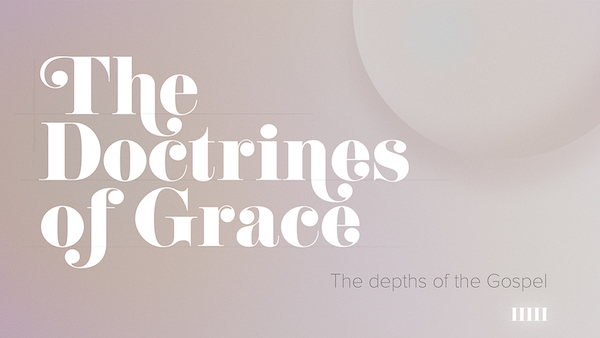
The word gospel means good news that brings joy. But how good is it? How much of it is based on God and His action and how much depends on us and our response? These are important questions, and they have to do with depths of the gospel.
The Doctrines of Grace are like looking as far down into the beautiful ocean of the gospel as possible, at least this side of heaven. What we see in these doctrinal deeps should make us wonder and praise God for the grace given to us.
These Doctrines are succinct answers to questions like how bad off are we? did God choose us or do we choose him? how does anyone come to faith in Jesus? what did Jesus accomplish on the cross? and can I lose my salvation? These are serious questions every Christian will ask or be asked. Why not survey the Scriptures and see if God has answered them clearly? That’s exactly what the Doctrines of Grace seek to do.
If we humble ourselves as we look to the Scriptures, these doctrines will lower us to our knees yet lift our souls into the joy of heaven itself.

“The greatest act of salvation in the Old Testament was not the Exodus alone.”¹ The Exodus was but the first half of the LORD’s great act of redemption in the Old Testament that foreshadows the gospel of Jesus Christ. The second half of this grand foreshadowing is laid out for us in the book of Joshua. Joshua tells the story of how the LORD executes his justice toward sin, and yet, at the same time, makes good on his promise to graciously give his people rest.
In simplest terms, the book of Joshua reveals how the LORD gave his people the inheritance—the land—that was promised long ago to Abraham. Exodus cannot be separated from Joshua any more than the cross of Jesus Christ can be separated from his resurrection and future inheritance Christians will receive. And this brings us to an important point: Make no mistake. The story of Joshua is ultimately about Jesus.
It’s about how he not only set his people free from bondage to sin on the cross, but how he also, in his resurrection and constant intercession, is fighting for them and leading them to the place that was promised—their final inheritance and rest in his presence forever. In light of the Greater Joshua, Jesus, we must make a decision. The same decision Joshua himself presses upon the people of Israel: “Choose this day whom you will serve, whether the gods your fathers served…or the gods…in whose land you dwell.” And with Joshua, may we all by grace through faith say, “As for me and my house, we will serve the Lord” (Joshua 24:15).

What is Church? What constitutes a local Church? What does it look like to be the Church? What is the purpose and mission of the Church? As Christians, we need to look to the Scriptures in order to answer these questions, not merely to our ideas or the traditions of men.
In Matthew 16:18, Jesus said, “I will build my church, and the gates of hell will not prevail against it.” In this short sentence, we learn three major things: 1) Jesus owns His Church. 2) Jesus wants His Church built a specific way. 3) Jesus will never let His Church be overcome.
Church means “Gathering; Assembly; Called-out ones.” When you see the word “church” in the Bible, it is the Greek word Ekklesia. In the Bible, this word is first used by Jesus in Matthew 16:18 “And I tell you, you are Peter, and on this rock I will build my church, and the gates of hell shall not prevail against it.” As we begin, it’s incredibly important to understand the church is not a specific place; it is a people. And it’s not just any people; it is the people who have been redeemed and reconciled to God because of Jesus’ perfect work on their behalf—His life, death, and resurrection. The church is made up of all those that God has saved by grace through faith in Jesus.
In this 12 week series, we will be looking to the Scriptures in order to see how Jesus wants His Church to be built, and rest in the fact that he will never let anyone or anything overcome it. Come and see.

An Easter Sunday sermon, 2018.

A Good Friday sermon, 2018.
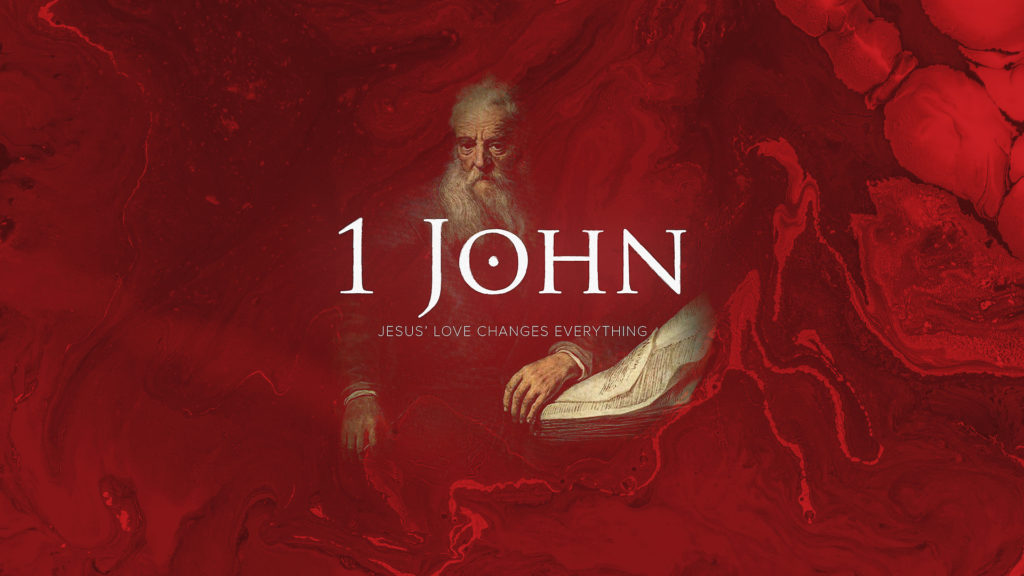
John was an ordinary young man following his father in the family trade of fisherman. Then one day, as Jesus walked by on the shores of Galilee, he called out to John and his brother James. “Immediately,” Matthew writes, “they left the boat and their father and followed him” (Matthew 4:22). Jesus called John into a relationship with him—he trained him, served him, taught him, rebuked him, gave him authority as an Apostle, and even entrusted his mother to John’s care as he was hanging on the cross. In short, Jesus loved John.
Not just in word, but in deed as well. John knew this; he knew the love of Jesus well. When he wrote his eye-witness account of Jesus’ life, death, and resurrection, he called himself “the one that Jesus loved” (John. 13:23). Years after Jesus ascended back to heaven, the Apostle John wrote a letter to multiple churches in modern day Turkey. The main thrust of his letter is this: The love of Jesus is for you to experience as well. And once you do, you will never be the same. Or you could say it another way: Jesus’ love changes everything.

An Advent sermon series, 2017.
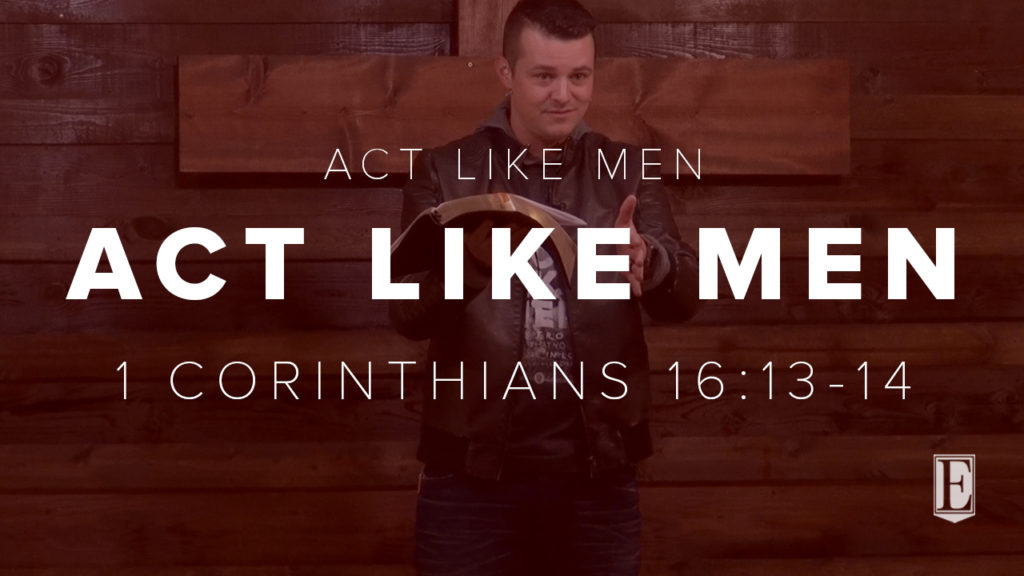
A sermon from one of our Act Like Men gatherings.
GOAL: May God use this message to strengthen those of you who are fighting in the thick of the battle, may He wake up those of you who are lazily sleeping in the trenches of the battle, and may He convert those of you who who are currently fighting against Him—those who currently belong to the enemy.

Jesus spoke about money more than any other subject. He warned against trusting in riches, coveting, being fearful and anxious about being provided for. In Luke 12 and Luke 19, we see two teachings of Jesus concerning money and one case study of what it looks like to use money for God’s glory with a new heart that loves Jesus.
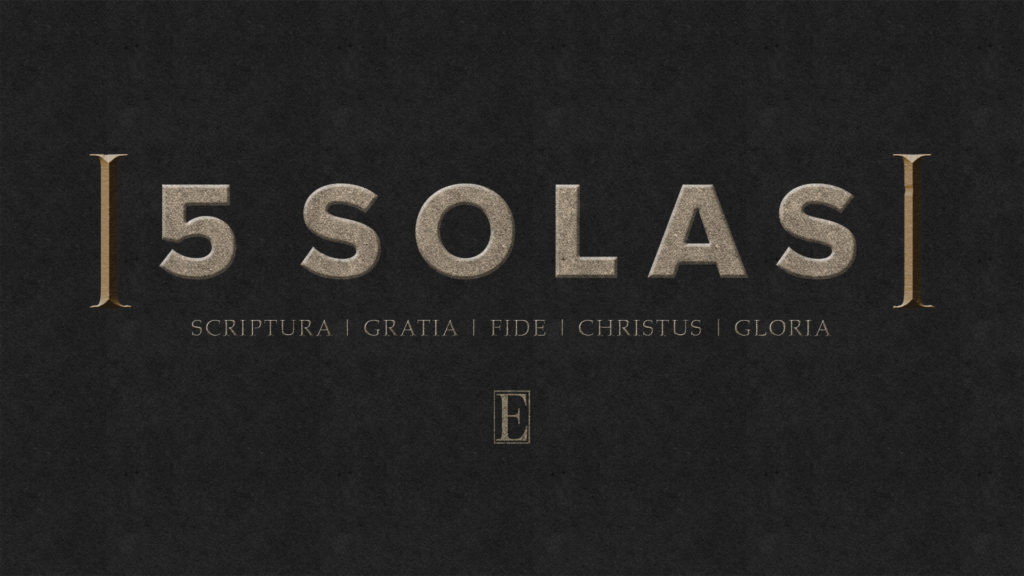
The unofficial launch of the Protestant Reformation was on October 31st, 1517, when an obscure monk nailed his 95 Theses to the church door in Wittenberg, Germany. This sparked a movement that changed the entire world as we know it. But why did it even happen? Here’s why: the good news of who Jesus is and what He has done for us had been distorted for hundreds of years under the rule of the Roman Catholic Church.
The gospel was all but lost. The church was radically unfaithful to Jesus both in what they believed and what they did. It was a dark time. Thankfully, Jesus is always faithful to His church even when she is not. In the 16th century, the LORD opened the eyes of many and used certain men and woman to recover, clarify, and proclaim the true message of salvation in Jesus Christ—the very message that had for so long been hidden, unclear, and kept quiet.
The central focus of these reformers (Martin Luther, John Calvin, and Ulrich Zwingli, to name a few) is summarized well in what came to be known as The Five Solas: We are made right with God through the revelation of Scripture alone, by Grace alone, through Faith alone, in Christ alone, to the glory of God alone.
These Five Solas are just as crucial for us to understand, apply, and teach today as they were in the 16th century. Why? Because they answer the most important question in the entire world: How can sinners be made right with God?

God’s plan of redemption is fully and finally revealed in Jesus Christ. However this redemption was foreshadowed in the book of Exodus as God saw, saved, and sanctified the people of Israel. By grace, God singlehandedly brought the Israelites out of slavery, into the promised land of Canaan. In this historical book written by Moses, God teaches us a great deal about who He is, what He requires, and how He provides.

And Jesus came and said to them, “All authority in heaven and on earth has been given to me. Go therefore and make disciples of all nations, baptizing them in the name of the Father and of the Son and of the Holy Spirit, teaching them to observe all that I have commanded you. And behold, I am with you always, to the end of the age.”
What does it look like to go and make disciples?
What does it look like for the gospel to transform a city?
What does it look like to be a church that Jesus has called us to be?
The book of Acts tells us what happened when Jesus ascended to heaven, gave the Holy Spirit to the church, and sent them on mission to make disciples of all nations.

Jesus is the most famous man to ever live, as well as the most controversial even to this day. More books have been written about Him than anyone that has ever lived.
But who is Jesus? This is likely the most debated question in the history of the world. What did he do? What did he say? But most importantly, what do his words and actions mean? If we are going to be able to answer these questions with any integrity, we need someone to tell us what truly happened when Jesus walked the earth. That is exactly what we have in the gospel account of Mark. He compiled an eyewitness account of Jesus’ life, death, and resurrection. Mostly drawing the content from his friend and ministry companion the Apostle Peter (who walked with Jesus), we can confidently trust that Mark’s testimony is faithful and true. Come study the gospel account of Mark to get a good grasp of who Jesus is and what it means for us.

An Advent sermon series, 2016.

Around 2,000 years ago, some 7,000 miles away, a homeless man was taken and brutally nailed to a cross, suffering the most painful of all deaths—crucifixion. This man is Jesus, and his death has serious implications for those who trust him. In this sermon series we will examine the the death of Jesus under 5 headings: Jesus the Sacrifice, the Justifier, the Redeemer, the Reconciler, and the Champion.

“I’m the one that’s got to die when it’s time for me to die, so let me live my life the way I want to” (Jimmy Hendrix). These words reverberate with most today, don’t they? I don’t doubt you have heard a variation of this: “It’s my life. Though we may not agree on how I should live it, I’m the owner and I’ll decide what’s right for me.” George Bernard Shaw once wrote, “Life isn’t about finding yourself. Life is about creating yourself.” That sounds fantastic, if we’re honest. We can wield creative power, controlling our destiny by our will and actions, even determining what’s right and wrong for ourselves. But what if that’s a lie? What if we’re created for something greater than autonomy and self-determination? What if we’re made for more than being a king among seven billion other kings?
According to the Bible, we’re not creators but created. We’re built not to be a king among the rest, but to know and serve the King of the universe. This is the only path for true and lasting joy—it’s why we exist. The apostle Paul put it like this: “For by him all things were created, in heaven and on earth, visible and invisible, whether thrones or dominions or rulers or authorities—all things were created through him and for him” (Colossians 1:16). In this sermon series we will examine what it looks like to live LIFE, and live it to the fullest.

An Advent sermon series, 2015.
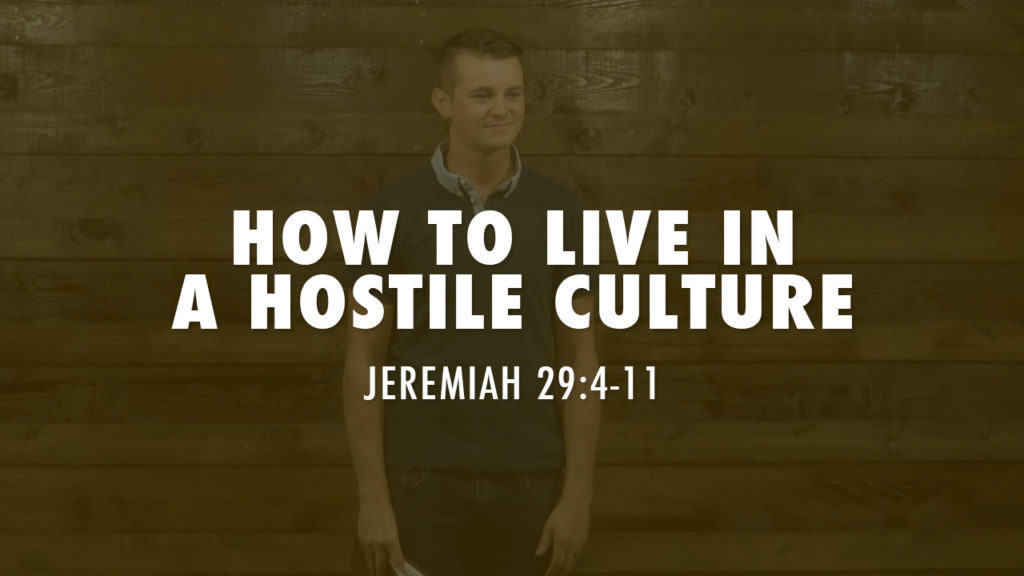
A sermon from Jeremiah 29 concerning how to live in a hostile culture.
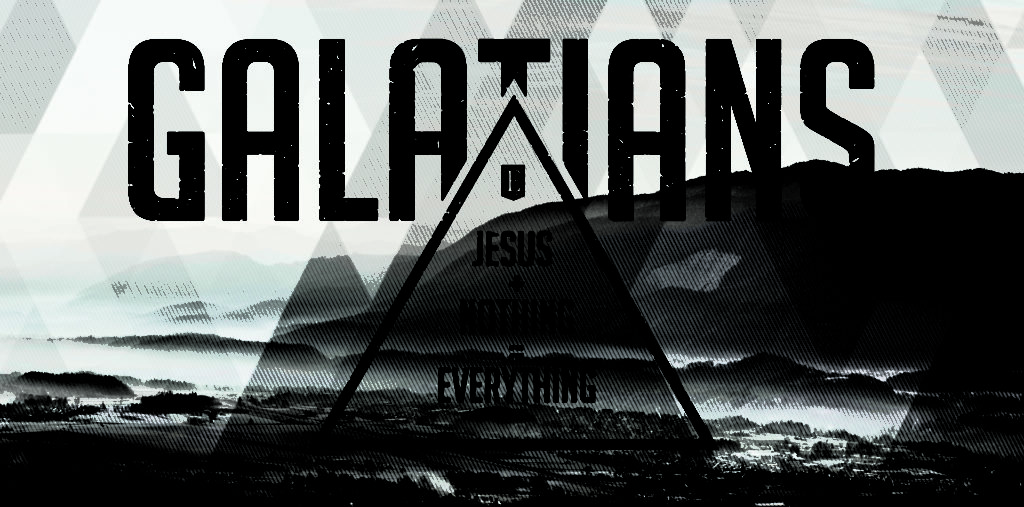
The book of Galatians is dynamite. It is an explosion of joy and freedom. Why? Because it brings us face to face with the gospel. It’s very common in Christian circles to assume that “the gospel” is something mainly for non-Christians. We see it as a set of basic “ABC” doctrines that are the way in which someone enters the kingdom of God. We often assume that once we’re converted, we don’t need to hear or study or understand the gospel—we need more “advanced” material. But in this short letter, Paul outlines the bombshell truth that the gospel is the A to Z of the Christian life. It is not only the way to enter the kingdom, it is the way to live as part of the kingdom.¹ Paul unpacks the truth that Jesus + Nothing = Everything.

Nearly 500 years ago, John Calvin made a stunning statement which still hangs in the air today: “The human heart is a perpetual factory of idols.”
But what constitutes something being an idol? An idol is anything in your life, other than Jesus, which if you lost it, you would lose personal worth and identity. In other words, losing it would disintegrate your life. Furthermore, an idol is anything you’re looking forward to, other than Jesus, for personal worth and identity. Receiving it would make your life complete. Idols are often not inherently bad things. They are typically good things we turn into ultimate things—gifts we turn into gods.
If the human heart is truly a perpetual idol factory, we need to approach everything we think and do asking this question: god or gift? Am I receiving this as a gift or am I worshiping this as a god? May we all pay careful attention to the Apostle John’s closing statement in his first letter: “Dear children, keep yourselves from idols” (1 John 5:21). This series looks at some of the main idols in our culture: Work, Relationships, Money, Sex, and Alcohol.

The book of Genesis shows us far more than how God created the world. It shows us that God has always been operating as a gracious giver. From the creation of the world and Adam and Eve, to the calling of Noah and Abraham, to the steadfast love shown to all of Abraham’s descendants, God has always been revealing His love for us by pouring out His grace! The people we see in Genesis are not superheroes we are to imitate, nor are the stories moral-hammers pounding us into the people we should be. Rather the book of Genesis reveals our need for Jesus. Jesus is the true and better Adam, Able, Noah, Abraham, Isaac, Jacob, and Joseph. Jesus is the true Descendant of Abraham who will bless the world by becoming the true and better Ark that brings God’s people safely through the waters of judgement, giving them new life.
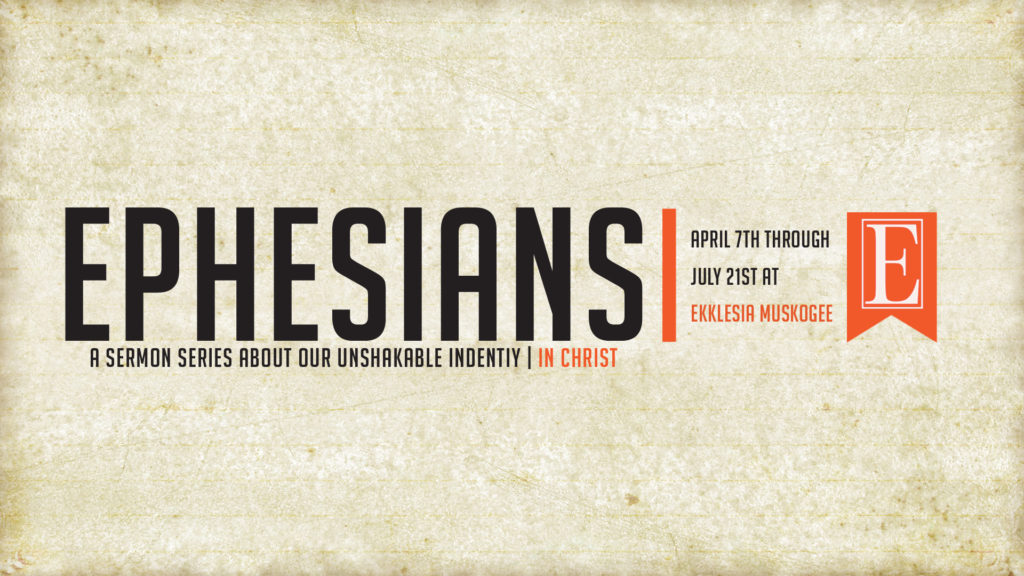
The book of Ephesians was written to people who lived in a culture that was saturated with idols. The Ephesians were constantly tempted to look to something other than Jesus to give them their identity. Sadly, things haven’t changed a whole lot in the last 2,000 years. We live in a culture that constantly tells us that our identity is found in what we have or have not done; what job we have or what career we are hoping for; how we have succeeded or how we have failed. This, simply, is anti-gospel and anti-Jesus. The gospel says that the identity we all need is one that cannot be taken away by our failure or circumstances. The identity that we need is found only in Christ.